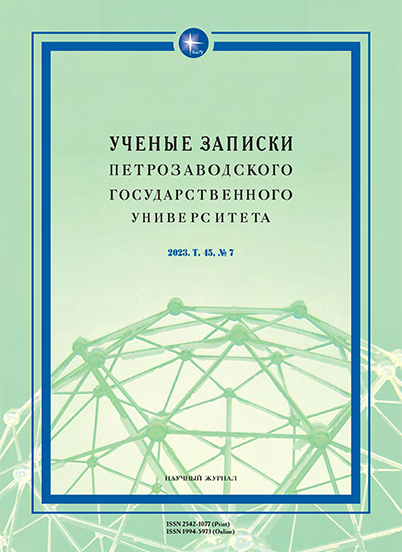ПЛИНИЙ-ЕСТЕСТВОИСПЫТАТЕЛЬ: ОБРАЗ РИМСКОГО УЧЕНОГО-ЭНЦИКЛОПЕДИСТА В ЗАБЫТОМ ОЧЕРКЕ
СЕРЕДИНЫ XIX ВЕКА
PLINY THE NATURALIST: THE IMAGE OF THE ROMAN SCHOLAR AND ENCYCLOPEDIST IN A FORGOTTEN MID-NINETEENTH-CENTURY ESSAY
Author(s): Ekaterina Leonidovna SmirnovaSubject(s): History, Russian Literature
Published by: Петрозаводский государственный университет
Keywords: antiquity; reception; ancient Rome; Pliny the Elder; Natural History; Pliny the Younger; Library for Reading journal;
Summary/Abstract: The role of the ancient component in the Russian literature of the second third of the XIX century is controversial for modern researchers. The study of the image of Pliny the Elder in the essay “Pliny the Naturalist” published in 1850 – which is one of the first detailed reviews of the life, works, and worldview of the famous Roman encyclopedist in Russian literature – was conducted in order to clarify and supplement the views on the features of the reception of ancient cultural heritage in Russian literature of the mid-XIX century. The analysis of the characteristic features of the portrait of Pliny the Elder in the studied essay leads to the conclusion that the narrator, whose name, unfortunately, remains unknown, innovatively portrays Pliny from a point of view unusual for the general reader: not only as the author of a grandiose Natural History, but as an active statesman and an original thinker of the dramatic era of the strengthening of the monarchy in Rome. The biography of Pliny the Elder is presented as a worthy example of the ability to manage time and successfully combine public service with academic pursuits. In the refl ections of Pliny the Elder on the place of man in the surrounding world, the conclusions about the deplorable nature of human ambition and the disastrous consequences it may have are highlighted as the key ones. Revealing the worldview of Pliny the Elder, the mid-nineteenth-century author at the same time reveals his own worldview to the reader, choosing examples from the Natural History that most closely correspond to his own views. A special role in the analyzed essay is given to an excursus about Pliny the Younger and a commentary on the assessments of Pliny the Elder’s works by de Buffon and Cuvier: they are meant to convince readers that a critical analysis of the ideas of classical writers and polemics with them do not negate favorable attitude to ancient authors, and the ancient heritage remains a solid foundation for the dialogue of times, uniting the representatives of various historical periods through reflections on the problems common to all centuries.
Journal: Ученые записки Петрозаводского государственного университета
- Issue Year: 45/2023
- Issue No: 7
- Page Range: 98-107
- Page Count: 10
- Language: Russian

